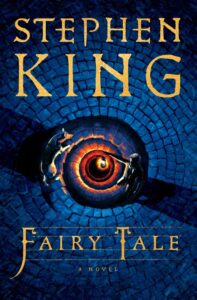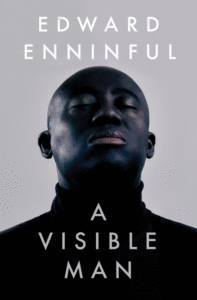
Stephen King’s Fairy Tale, Maggie O’Farrell’s The Marriage Portrait, and Edward Enninful’s A Visible Man all feature among the Best Reviewed Books of the Week.
1. The Marriage Portrait by Maggie O’Farrell
(Knopf)
15 Rave • 7 Positive • 3 Mixed • 1 Pan
“The book’s use of present tense rushes us along on the leading edge of her experience. O’Farrell has an uncanny ability to put us in Lucrezia’s very unusual shoes. One experiences, viscerally, Lucrezia’s exhaustion and terror when she is abandoned in a strange place a few hours after her marriage, her giddy excitement and expansive feeling of freedom in the early days of her marriage, her revulsion and fear as her husband’s ‘fury and contempt’ emerge, and her certainty that ‘some vital part of her will not bend, will never yield’ … The final twist is so unexpected and so gorgeously executed that it brought this reader to tears. With it, O’Farrell demonstrates fiction’s ability to offer counter narratives to those of received history, to open before us imaginative abundance and a tremulous sense of possibility.”
–Pricilla Gilman (The Boston Globe)
2. If I Survive You by Jonathan Escoffery
(MCD)
7 Rave • 3 Positive
“Ravishing … The book, about an immigrant family struggling to make ends meet, delights in mocking the trope of an immigrant family struggling to make ends meet … There’s peacocking humor, capers, and passages of shuddering eroticism. The book feels thrillingly free … Escoffery’s protagonists, though resourceful, can’t accomplish the impossible; nor do they sacrifice themselves for the reader’s sentimental education … The prose comes alive … These characters are strange amalgams of limited agency and boundless originality. Their survival, perhaps, comes down to their style … Escoffery deftly renders the disorienting effects of race as they fall, veil-like and hostile, over a world of children … Throughout, the refrain runs like an incantation: What are you? Escoffery, hosing his characters in a stream of fines, bills, and pay stubs, studies the bleak math of self-determination.”
–Katy Waldman (The New Yorker)

3. Fairy Tale by Stephen King
(Scribner)
7 Rave • 4 Positive • 1 Pan
“There’s plenty of fresh invention in Fairy Tale, but much of what Charlie encounters reminds him of something else he’s seen or read … King’s portals—like his novels—have always been leaky apertures, prone to cultural exchange and playful cross-contamination … Fairy Tale is a multiverse-traversing, genre-hopping intertextual mash-up, with plenty of Easter eggs for regular King devotees. Thankfully, it’s also a solid episodic adventure, a page-turner driven by memorably strange encounters and well-rendered, often thrilling action … Despite the plot’s twists and turns, the biggest surprise Fairy Tale has to offer King’s so-called Constant Readers might be the book’s promise of a happy ending … I’ll bet many readers hungry for a genuinely feel-good adventure won’t care what tactics King uses to deliver the goods: These days, some of us will take all the happy endings we can get, however unlikely they seem.”
–Matt Bell (The New York Times Book Review)
**
1. Super-Infinite: The Transformations of John Donne by Katherine Rundell
(Farrar, Straus and Giroux)
9 Rave 3 Positive
“Rundell shares some of her subject’s daring, which likely contributes to the freshness of her take on Donne … She is especially good on Donne’s efforts to express ideas in novel ways … Rundell’s own style can dazzle, though at times the wit feels a bit strained … Rundell is keenly aware of the misogyny of a good number of these poems, and defends Donne without excusing him, pointing out that it’s a mistake to conflate the poet with the poem’s speaker … Far more than previous (and male) biographers, Rundell is alert to Anne’s travails … Those who write about Donne tend to gravitate either to the libertine poet and secretly Catholic Jack Donne or to the sober Protestant preacher, Dr. Donne … One of the great achievements of this impressive biography—which rises to the challenge of introducing Donne and his world to the next generation of readers—is that it shows how these two Donnes were always one and the same.”
–James Shapiro (The New York Times Book Review)

2. A Visible Man by Edward Enninful
(Penguin)
4 Rave • 3 Positive
“Black readers specifically—British, American, Ghanian or otherwise—will find Enninful’s experiences of racism relatable … It would be misguided to pick up this memoir in search of scoops about Enninful’s American Vogue counterparts. The author knows his story is his own, and he does not lean on gossip in charting his own rise … The industry insights are intriguing, but some of the most memorable and endearing passages in this book consist of Enninful’s more personal disclosures … He writes poignantly about his close relationship with his mother, his adoration of his siblings and his tense relationship with his father … The memoir truly shines in its most intimate revelations of Enninful’s sobriety and depression, of what it felt like to soar professionally while struggling personally—and of how he learned to lean on those who love him most.”
–Tariro Mzezewa (The New York Times Book Review)
3. The Instant by Amy Liptrot
(Canongate)
4 Rave • 2 Positive • 2 Mixed
“There are beautiful descriptions of Berlin as she drifts through the city … In synopsis this could appear slight, a difficult second album of a book. However, moment by moment, The Instant begins to accrue an extraordinary weight … Liptrot’s is a brilliant examination of the dangerous power of smartphones … Liptrot captures the flattening, insulating impact of handheld devices on the experience of travel … It is a book distracted by everything: the migration of raccoons, stonemasonry, memory fragments, poetry and gnomic utterances. It is a literature produced by a writer with too many tabs open on their laptop, and because of that, it is the truest thing I’ve read in a long time. It feels revelatory to read serious, thoughtful writing on the sorts of experiences that so rarely receive it. The book is particularly sharp on the agony of a relationship’s aftermath in a digital age … The Instant is the most elegant examination of the internet’s distance pain I have ever read.”
–Evie Wyld (The New York Times Book Review)

